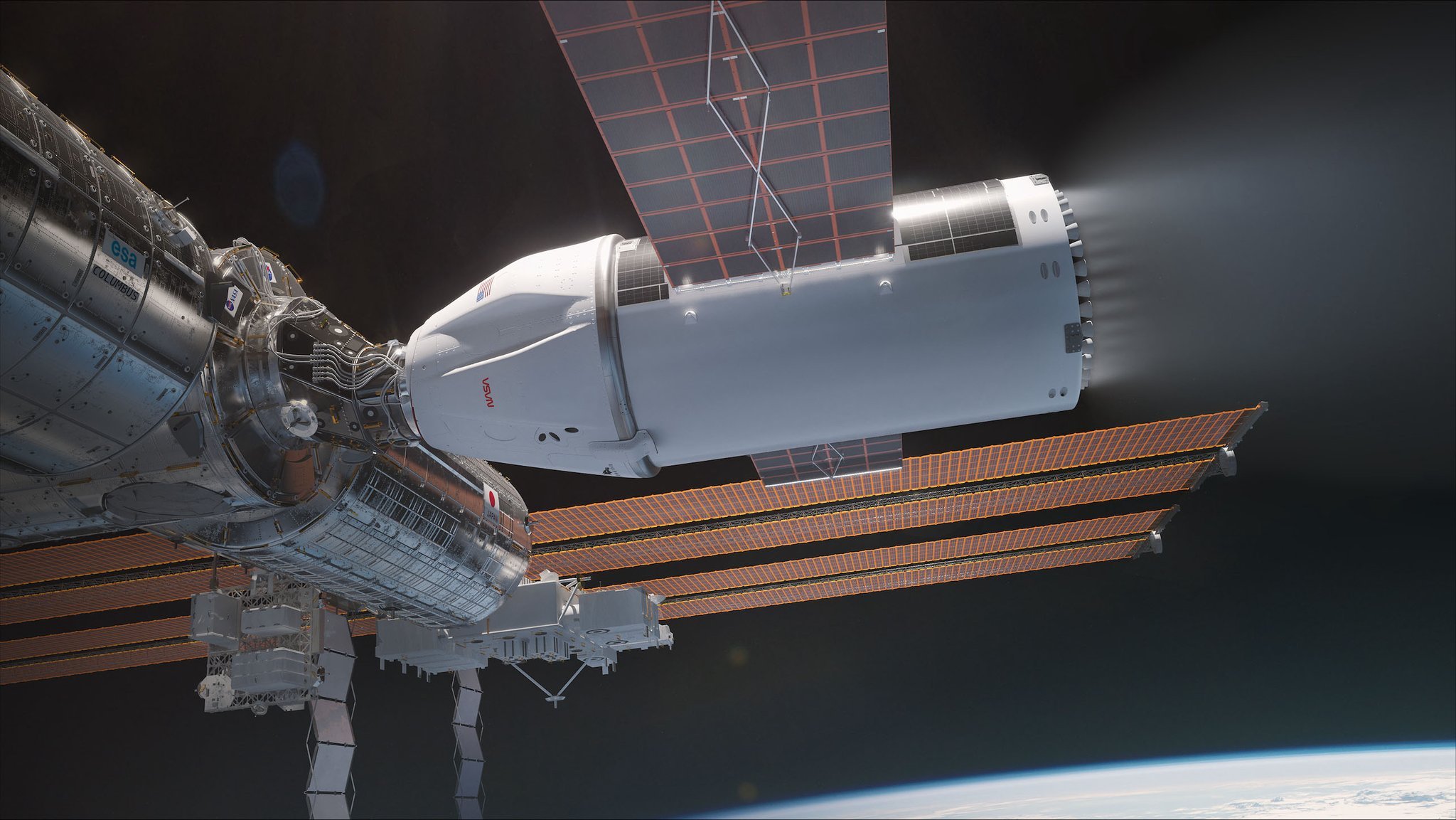With 6x more propellant and 4x the power of today’s Dragon spacecraft, SpaceX was selected to design and develop the U.S. Deorbit Vehicle for a precise, controlled deorbit of the @Space_Station
Looks like there will be 30 draco engines on the back of that thing. Pretty Kerbal!
Edit:

LOL, they just stretched the trunk and put a sh*tload of draco thrusters on the back. Definitely Kerbal AF.
I wonder how they’ll launch it? Will Falcon 9 be enough, or Falcon Heavy be required? Will they also need a custom stongback? It will be a taller stack than a regular Dragon.
For the strongback, they’ve made changes in the past, like recently running liquid methane up it for Intuitive Machines, so that shouldn’t be too big of a deal.
There’s junk in that trunk
NASA is not paying SpaceX enough to design a new engine for this, so they may as well use what they have.
For $0.8 billion I’d design a new engine! (Would have to learn rocket science first but I’d be able to afford the best teachers, so doable.)
Will Falcon 9 be enough, or Falcon Heavy be required?
https://www.youtube.com/live/Dw1JXZwo00o?t=34m48s (34:48) Seems to imply Falcon 9 is insufficient.
But later on the SpaceX person is asked about launch and just says something about the “Falcon product line”, IIRC.
Cool, but not the best use of $0.8 billion. NASA should go to the UN and try to get a load of countries to agree to just accept the risk of an uncontrolled re-entry. Keep $0.01 billion to compensate for any damage/injury caused. Give the rest to poverty alleviation.
Out of interest, if there are specific parts of the ISS that are expected to survive re-entry, could they be removed and put in a Cygnus or something? Leaving the rest to fully burn up?
And how bad an idea would it be to wait until the ISS is a day away from re-entry, and then launch a missile at it? (Presumably it would be better if they could use a trajectory where the missile approaches the ISS from above.)
(Yes, I know, none of this will ever happen. I’m just interested in any thoughts anyone has.)
A missile would not change the re-entry time or location: just break the target into many pieces. In the one case where the US used a missile the target broke into many small pieces which mostly burned up on re-entry but I don’t think that would happen with the ISS. Uncontrolled re-entry of a single large object would, I think, be preferable to re-entry of dozens of them.
No agreement would have any effect on the headlines saying “US allows its spacestation to crash on city, killing 800 people”.
Uncontrolled re-entry of a single large object would, I think, be preferable to re-entry of dozens of them.
I guess the opposite. It won’t be a single object for long, after the final re-entry has started, so I say give the breakup process a headstart! (Well, I don’t actually. I actually assume it’s a bad idea, and would like to know why. Geopolitics not included.)
No agreement would have any effect on the headlines saying “US allows its spacestation to crash on city, killing 800 people”.
Agreed. However, I’d bet my life that this wouldn’t happen. Both literally (though I’d need good odds, and a high valuation for the value of my life!), and in the sense that I (and all my loved ones) live under the ISS’s flight path.
I estimate (partly based on this) that less than 0.6% of the earth’s surface is “built-up”. (Though the ISS doesn’t fly over it all equally, so call it 1%.)
For what it’s worth (nothing?!), I used that figure, and some other guessed figures, to guess that the expected value of the number of people killed per uncontrolled ISS reentry is 0.05, so on average needing 20 space stations to kill 1 person.
For a bit of context, Give Well reckons there’s at least one charitable programme where it only costs $5000 to save a human life.
Also, the total budget request for this deorbit plan (including launch and operating costs, etc.) is more like $1.5 billion.
And again, I know something like this US Deorbit Vehicle is the only realistic option. But if I was Bill Nelson I’d at least be writing a quick letter to the UN; let them be the ones to make this (probably) wrong decision.
Let’s not set the precedent of having the UN make decisions about space.


